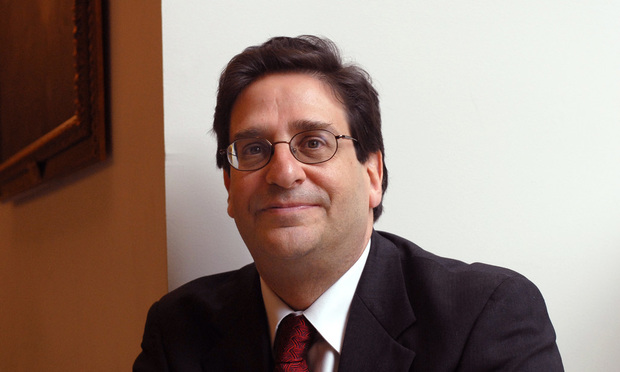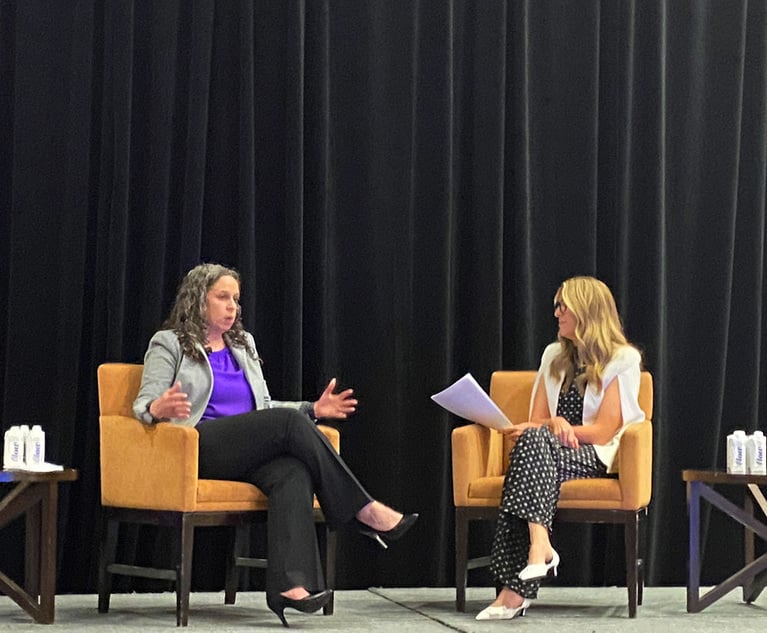International students have become an increasingly important component of student bodies and budgets at U.S. law schools over the past decade, but the COVID-19 pandemic appears likely to shut off—or at least dramatically narrow—that pipeline for the coming academic year.
The desire and ability of foreign lawyers to enroll in the LL.M. programs that have proliferated in recent years, alongside that of international students who pursue J.D.s, is one of many question marks currently hanging over law school admissions. (The Law School Admission Council has canceled its March and April LSAT administrations and is planning an at-home exam in May.)
Many international students want the experience of living and studying in the U.S. for a year or more and may be reluctant to sign up for online programs if university campuses remain closed in the fall, according to law school administrators. International travel restrictions could also hinder their ability to study in the U.S. In addition, whether foreign students will be able to obtain visas in time for the fall is also uncertain. The State Department has currently suspended routine visa services across the globe. Finally, questions remain about the ability of LL.M. students to sit for the New York bar exam if classes remain online, as the state’s rules require in-person instruction.
“It’s not going to slow down—it’s going to shut,” said Marc Miller, dean of the University of Arizona James E. Rogers College of Law. “There is no plausible scenario for [international law students] to be here, even if they have the resources, schools are open, and they want to be here. If you can’t get a visa—unless you can start digitally—it doesn’t matter. And it’s not clear that people can start in January either. We may be talking about a year delay, or more, imposed by the realities of immigration policy and the availability of international air travel.”
Miller is one of many law deans thinking through how to adjust programming to accommodate international students who may not be able to come to the U.S. in the fall, or who simply don’t want to travel here amid the COVID-19 pandemic. Arizona has a small LL.M. program, but international students make up 20% of its J.D. class. (The law school offers a dual degree in Chinese and U.S. law in partnership with a university in Qingdao, China.)
International students have become an ever-more-important component of law school admissions and finances, and a major decline in their enrollment numbers will have negative implications for many campuses. Schools rapidly added LL.M. programs in the wake of the 2008 financial crisis when the number of domestic applicants plummeted dramatically. The tuition dollars of foreign students has helped to fill the financial gap caused by smaller J.D. classes.
Nearly half of the 200 law schools accredited by the American Bar Association now have LL.M. programs for foreign attorneys, and the number of students enrolled in non-J.D. programs hit an all-time high in 2019, ABA data shows. Non-J.D. students accounted for 15% of all law school enrollment this academic year. Not all of those students are international, but many are. And foreign students now compose more than 3% of national J.D. enrollment, and 7% of J.D. students at the top 20 law schools, a recent study found.
The University of Southern California Gould School of Law has one of the country’s largest LL.M. programs, with more than 200 students. The majority of them are foreign, said Sarah Gruzas, director of the school’s graduate and international programs. The school is closely watching to see what happens with travel restrictions and student visa policies.
“There’s a lot of uncertainty for our students who have been admitted and who are thinking about enrolling in the fall,” Gruzas said this week. “To be honest, we still don’t have any answers. We’re waiting to see what will happen with the pandemic. At this point, we haven’t had students say, ‘I’m definitely not coming,’ or saying, ‘I’m definitely coming.’ It’s so hard to predict.”
Part of that holdup is that universities and admitted students don’t yet know whether classes will be held in-person or online—a factor that is sure to influence the decisions many international students make about whether to enroll, defer a year, or abandon their plans for a U.S. law degree altogether.
“For the majority of international students, being on campus for a U.S. LL.M. program is a big factor,” Gruzas said. “We offer some online LL.M.s, but the enrollment for the on-campus programs is just much higher because people want that full experience of living in the U.S.”
Still, USC should be able to shift its LL.M. program online if need be, she added. But the presence of international students on campus also creates a richer educational experience for domestic law students and their absence would be felt, said Gruzas and other administrators, noting that foreign students provide a look at how justice systems operate around the globe.
For now, Gruzas has a more positive outlook on the ability of foreign law students to obtain student visas than Miller. She said her expectation, at the moment, is that students will be able to secure the necessary documents for fall enrollment.
The chance to live in New York City is a major draw for many of the approximately 180 international students who come to Fordham University School of Law each year, said dean Matthew Diller this week. (Although New York’s emergence as the epicenter of COVID-19 in the United States could lessen its appeal among international students, at least for the short term.) The school should be able to move its LL.M. program online by the fall if need be. That would likely dissuade some applicants, but it might be a selling point for others who don’t want to uproot their lives for a year, Diller said.
“The next few months are critical,” Diller said. “This is a key time when people are deciding if they want to be studying in the U.S. And if they do, they have to be applying for visas. The desire to study in the U.S. is still strong, but right now people are focused on the basics of their health and getting through this.”
NOT FOR REPRINT
© 2024 ALM Global, LLC, All Rights Reserved. Request academic re-use from www.copyright.com. All other uses, submit a request to [email protected]. For more information visit Asset & Logo Licensing.


 Matthew Diller.
Matthew Diller.





